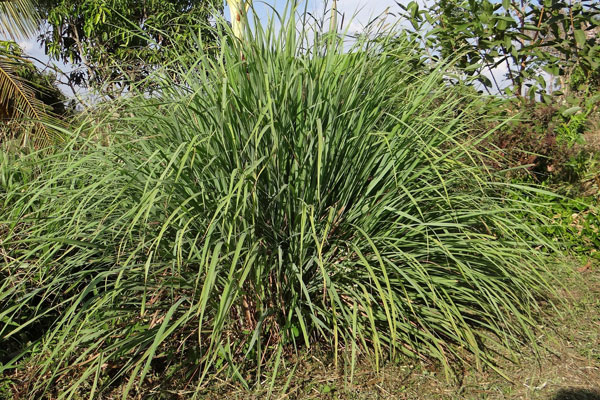Lemon grass (Cymbopogon citratus)

Lemon grass belongs to the sweet grass family and originally comes from Asia. Today, the plant, also known as lemon grass or citronella, is native to the tropics worldwide.
Lemon grass is an important seasoning ingredient in Thai and Vietnamese cuisine. But the leaf shoots and the rhizome are also traditionally used in Asian medicine. For healing purposes, tea is prepared from them, which is administered as a general tonic or for painful gastrointestinal cramps. Traditional Indian medicine also uses lemon grass preparations for diarrhoea and cholera. In contemporary Cuban medicine, this sweet grass is used for high blood pressure and high cholesterol levels. The naturopathy of our latitudes also uses lemongrass oil mixed with fatty oil externally to promote blood circulation in cases of nerve pain, lumbago, rheumatism and sprains. Aromatherapy practitioners also appreciate the calming effect of the fruity scent.
The most valuable ingredient in lemongrass is its essential oil, known as “citronella”, which contains about 80 percent citral and about 20 percent myrcene. Citronella has broad bactericidal and fungicidal properties, relieves pain and also has an anti-inflammatory effect. In addition to modern use for paradontitis and fungal diseases in the oral cavity, essential oil mixtures with the ingredient citronella are also applied to improve the air in rooms with increased germ density.
The essential oil from lemongrass also has a proven repellent effect on insects and arachnids and is therefore a component of many repellents for humans and animals. For example, citronella has long been used successfully in Africa to repel mosquitoes that transmit malaria tropica and sleeping sickness.
Modern cancer research is also concerned with citronella oil and its antioxidant and potentially cancer-inhibiting effects.